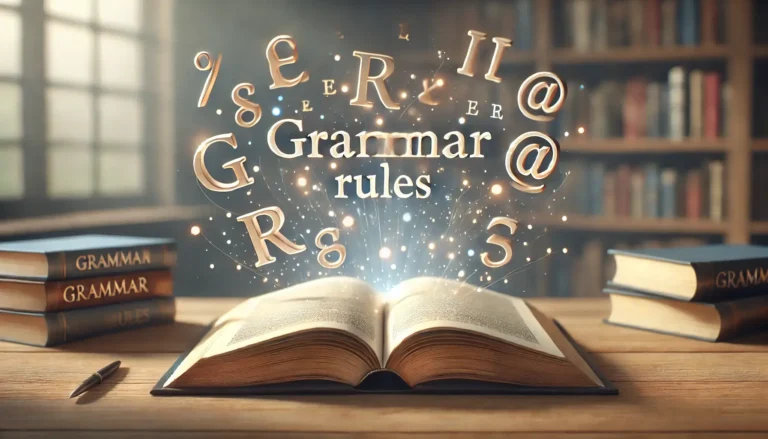Both “only if” and “if only” may look similar because they contain the same words, but they serve entirely different purposes in English.
Understanding the differences between these two phrases is essential for high school students, as they convey distinct meanings and are used in different situations.
This article explores each phrase in depth, providing simple explanations, detailed examples, and practical guidance on when and how to use them effectively.
Shop laptop & School bags
Check out top-quality laptops and stylish school bags at Zed PCs – perfect for work, study, and on-the-go convenience! Shop now and find unbeatable deals on the essentials you need. For more information, don’t hesitate to get in touch with the website directly. Come one, come all.
1. “Only If”
The phrase “only if” introduces a strict condition that must be fulfilled for the outcome to occur. This means that the result will happen only under one specific condition, and if the condition is not met, the result cannot take place.
Meaning:
Using “only if” emphasizes that something is absolutely necessary for the outcome. There are no exceptions. If the required condition isn’t met, the event or action in the main clause will not happen.
Examples:
- “You can leave early only if you complete the task.”
- Here, leaving early depends on completing the task. If the task isn’t finished, leaving early is not allowed. Completing the task is an absolute requirement.
- “We will approve your application only if you submit the documents by tomorrow.”
- In this case, the approval of the application hinges on meeting the condition of submitting the documents on time.
Key Use:
- “Only if” establishes necessary conditions and stresses exclusivity.
- It is often used to limit situations to one condition, making it clear that the result cannot happen unless that particular condition is fulfilled.
Tense:
“Only if” is generally used with present or future tense, since it deals with conditions that apply now or in the future.
Shop laptop & School bags
Check out top-quality laptops and stylish school bags at Zed PCs – perfect for work, study, and on-the-go convenience! Shop now and find unbeatable deals on the essentials you need. For more information, don’t hesitate to get in touch with the website directly. Come one, come all.
2. “If Only”
“If only“ is used to express a wish, regret, or longing about something that is either untrue or has not happened. It reflects how the speaker wishes things were different from reality.
Meaning:
With “if only,” the speaker expresses a feeling of disappointment or longing, often about past events or hypothetical situations. It’s as if the speaker imagines how things could be better or different under different circumstances.
Examples:
- “If only I had studied harder, I would have passed the exam.”
- This sentence expresses regret about not studying hard enough. The speaker wishes they had worked harder, implying that things would be different now if they had done so.
- “If only it weren’t raining, we could go to the park.”
- Here, the speaker is expressing a wish for different weather. The rain is preventing them from going to the park, and they wish the situation were otherwise.
Key Use:
- “If only” conveys wishes or regrets about situations that are unreal, hypothetical, or in the past.
- It adds an emotional tone to sentences, revealing what the speaker hopes or longs for, even though the situation cannot be changed.
Tense:
“If only” is often used with the past tense to express regrets about something that didn’t happen. It can also be used to talk about hypothetical situations in the present or future.
Shop laptop & School bags
Check out top-quality laptops and stylish school bags at Zed PCs – perfect for work, study, and on-the-go convenience! Shop now and find unbeatable deals on the essentials you need. For more information, don’t hesitate to get in touch with the website directly. Come one, come all.
Summary of the Difference Between “Only If” and “If Only”
The table below highlights the key differences between “only if” and “if only” to make it easier to understand:
| Aspect | Only If | If Only |
| Meaning | Necessary condition for a result | Wish or regret about a situation |
| Function | Emphasizes exclusivity | Expresses longing or regret |
| Example Sentence | “You can go out only if you finish your homework.” | “If only it weren’t raining, we could go outside.” |
| Tense | Usually present or future | Often used with past or hypothetical situations |
In-Depth Comparison with More Examples
- “Only If”:
- Example: “We will allow the students to go on the field trip only if their parents give written consent.”
- Explanation: In this case, the field trip is strictly contingent on getting written permission from parents. Without this consent, the students will not be allowed to participate.
- Example: “We will allow the students to go on the field trip only if their parents give written consent.”
- “If Only”:
- Example: “If only I had listened to my teacher, I wouldn’t have failed the test.”
- Explanation: This sentence expresses regret about not listening to the teacher. The speaker feels that if they had listened, they might have done better on the test.
- Example: “If only I had listened to my teacher, I wouldn’t have failed the test.”
Shop laptop & School bags
Check out top-quality laptops and stylish school bags at Zed PCs – perfect for work, study, and on-the-go convenience! Shop now and find unbeatable deals on the essentials you need. For more information, don’t hesitate to get in touch with the website directly. Come one, come all.
Why It’s Important to Understand the Difference
Understanding the difference between “only if” and “if only” is crucial for mastering conditional expressions in English. These phrases are not interchangeable since they serve very different purposes:
- “Only if” helps in creating conditional clauses that focus on strict requirements.
- “If only” expresses wishes or regrets, often dealing with situations that cannot be changed.
Knowing when to use each phrase can help students improve both their written and spoken English, especially in contexts like formal writing (for “only if”) and expressing emotions (for “if only”).
Conclusion
In summary, the phrases “only if” and “if only” might look similar, but they have distinct meanings and uses. “Only if” emphasizes necessary conditions that must be met for a result to occur, while “if only” expresses regret or longing for things to be different from how they actually are.
Mastering these phrases will not only help students understand the nuances of English grammar but also improve their ability to communicate more clearly and express emotions effectively.







